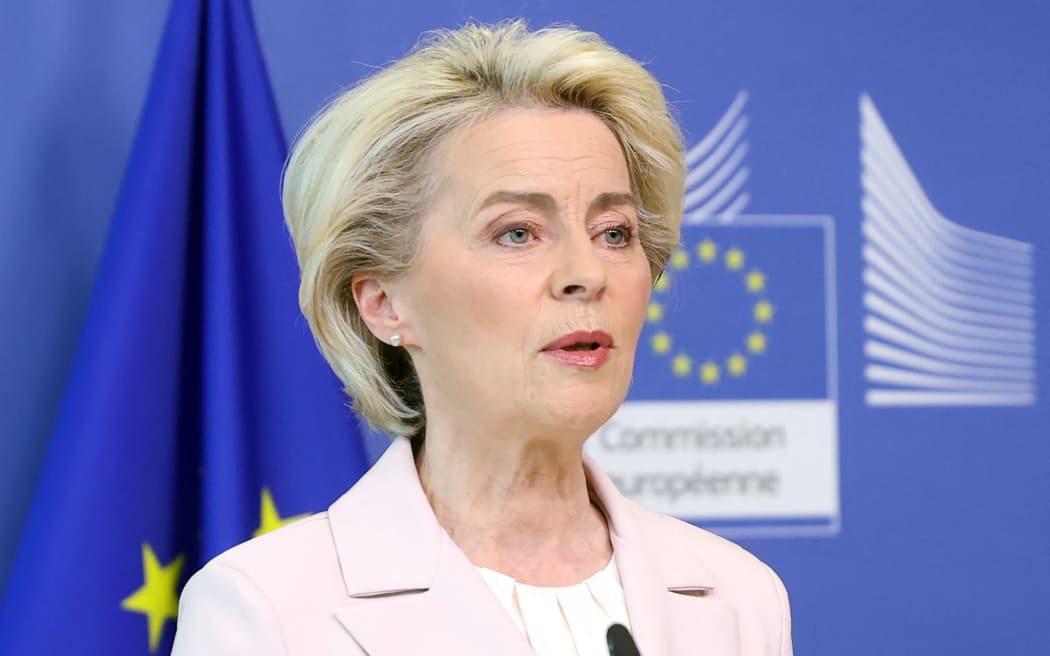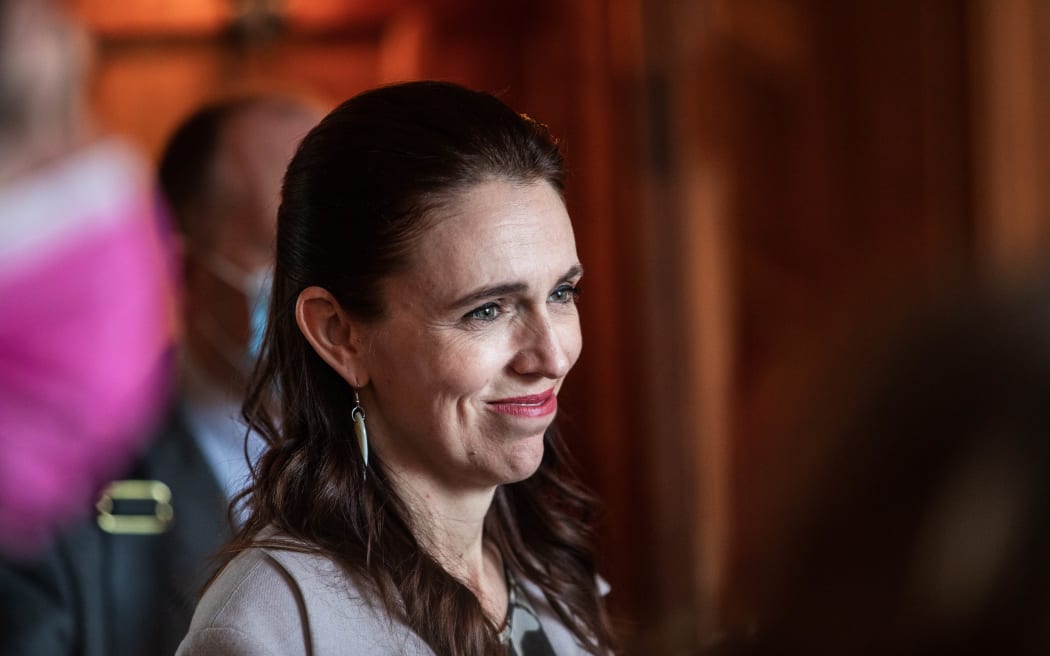Opinion – Jacinda Ardern will need to deploy every aspect of her starpower if she is to have any hope of rescuing New Zealand’s faltering free trade negotiations with the European Union (EU).
The Prime Minister has branded each of her four foreign trips so far this year as ‘trade missions’ – and the labelling will certainly ring true on her visit to Brussels this week.
 Prime Minister Jacinda Ardern will hold direct talks with Ursula von der Leyen, the President of the European Commission. Photo: 2022 Anadolu Agency
Prime Minister Jacinda Ardern will hold direct talks with Ursula von der Leyen, the President of the European Commission. Photo: 2022 Anadolu Agency
On Thursday, Ardern will hold direct talks with Ursula von der Leyen, the President of the European Commission. The former German defence minister has become a familiar face on New Zealand television screens over the past few months, thanks to her repeated announcements on the EU’s support for Ukraine.
Unfortunately for Ardern, however, von der Leyen is more of a figurehead who can only serve as a go-between in the negotiations with the EU’s 27 member states.
And when it comes to New Zealand’s key agricultural exports, the prospects for a favourable deal are bleak.
Malcolm Bailey, the chairman of the Dairy Companies Association of New Zealand, says the EU is ‘doubling-down on keeping its market almost entirely shut to New Zealand dairy exporters’.
The EU’s initial market offer to New Zealand, leaked in 2020, included an export quota of just 1500 tonnes of cheese annually – and just 600 tonnes of butter.
The final agreement will no doubt bring some improvement on this low-ball offer, but probably not much.
Ardern might have hoped that the major foreign policy shifts taken by New Zealand since Russia’s invasion of Ukraine in February would have had some impact on the EU’s approach to trade deals with Western partners outside the bloc.
After all, the talk at every post-Ukraine meeting of Western leaders is now of solidarity and unity.
And New Zealand has undoubtedly made major, EU-friendly shifts to its foreign policy since February.
Ardern performed an historic U-turn on the principle of autonomous sanctions by passing the Russia Sanctions Act in March, before making equally symbolic defensive and lethal aid commitments to Ukraine – and even deploying a small number of New Zealand troops to Europe.
Of course, there was never any formal indication or even a suggestion that New Zealand’s support for Ukraine was part of any quid pro quo.
New Zealanders were as shocked as anyone by the brutality of Vladimir Putin’s invasion and calls for Wellington to do more to help Kyiv came just as much from domestic sources as from international ones.
Nevertheless, the idea that New Zealand’s alignment with the EU’s position on Ukraine could have an impact on the free trade agreement (FTA) has always lingered below the surface.
In March, the EU’s ambassador to New Zealand, Nina Obermaier, told a Parliamentary select committee: “I am certain that the current situation is very much on everybody’s minds and that definitely will have an impact on how quickly we can conclude.”
More recently, Obermaier – who is travelling to Brussels with Ardern – said the EU-NZ free trade deal would be an ‘important signal’, remarking that ‘the appetite to conclude trade agreements in a context where the global rules-based order is under threat has only become stronger.
For New Zealand, a solid free trade agreement with the EU is more than just a ‘nice to have’.
By moving New Zealand closer to the West over recent months – whether by design or simply by virtue of circumstance – Jacinda Ardern has arguably exposed New Zealand to greater geopolitical risk.
The news that New Zealand has signed up to a new US-led grouping that also includes Australia, Japan and the United Kingdom – Partners in the Blue Pacific (PBP) – demonstrates once more how Wellington is drifting towards the West.
The problem is that while New Zealand is increasingly backing the West, the West is not fully backing New Zealand.
 Prime Minister Jacinda Ardern must secure a trade deal that’s reflects the support given to the West in recent times. Photo: RNZ / Samuel Rillstone
Prime Minister Jacinda Ardern must secure a trade deal that’s reflects the support given to the West in recent times. Photo: RNZ / Samuel Rillstone
Neither the EU, nor the US are supporting their rhetoric of solidarity and unity with the economic deals New Zealand would need to have a true alternative to China.
Across the Atlantic, the US’ new Indo-Pacific Economic Framework (IPEF) may bring some smaller benefits – and could eventually become something bigger – but even the White House admits that it is ‘not a traditional free trade agreement’.
Only the United Kingdom seems to have fully grasped the concept that New Zealand needs a trade lifeline. New Zealand was pleasantly surprised by the gold-plated FTA that it secured with the UK last year – a deal that the UK itself predicted could reduce its own GDP – which could only be explained by geopolitics.
Of course, Joe Biden and Ursula von der Leyen might well argue that direct comparisons with the UK are unfair.
If it were up to them personally, they would probably happily sign off on a trade deal with New Zealand – population five million – as a small geopolitical price to pay for getting another Western country on side.
Biden can only sign off on what a protectionist Congress permits (in other words, very little), while von der Leyen has the near-impossible task of balancing the interests of 27 EU member states.
By contrast, for all his weakened personal political capital, Boris Johnson still has the numbers to easily push the UK’s free trade deal with New Zealand through the House of Commons.
Jacinda Ardern is about to scatter stardust over Brussels. But it could all be in vain.

Leave A Comment